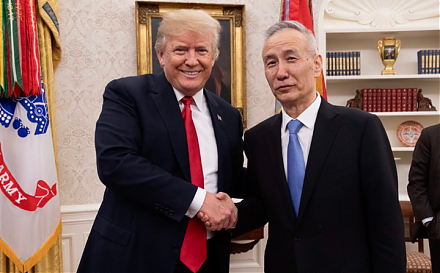

Home > Library > Bidenomics
Author Andy Yeh Alpha
This AYA analytic ebook delves into the macroeconomic and technological aspects of Bidenomics from mid-2020 to present. This ebook comprises 3 main parts. The first part explains the pre-Biden Trump economic policy reforms in trade, taxation, and technology in accordance with anti-China investor sentiment and neo-liberal public choice. The second and third parts discuss the central foundations of Biden economic policy reforms in fiscal and monetary policy coordination, climate change, and the Inflation Reduction Act. Through these latter analytic reports, Bidenomics focuses on the recent technological advances and their broader policy implications for environmental, social, and governance (ESG) stock market investment strategies etc. This macro trend has profound public policy implications for U.S. tech titans Meta, Apple, Microsoft, Google, Amazon, Nvidia, and Tesla etc (MAMGANT).
Description:
This AYA analytic ebook delves into the macroeconomic and technological aspects of Bidenomics from mid-2020 to present. This ebook comprises 3 main parts. The first part explains the pre-Biden Trump economic policy reforms in trade, taxation, and technology in accordance with anti-China investor sentiment and neo-liberal public choice. The second and third parts discuss the central foundations of Biden economic policy reforms in fiscal and monetary policy coordination, climate change, and the Inflation Reduction Act. Through these latter analytic reports, Bidenomics focuses on the recent technological advances and their broader policy implications for environmental, social, and governance (ESG) stock market investment strategies etc. This macro trend has profound public policy implications for U.S. tech titans Meta, Apple, Microsoft, Google, Amazon, Nvidia, and Tesla etc (MAMGANT).
Part 1: pre-Biden Trump economic policy reforms in trade, taxation and technology.
The global economy faces a paradigm shift toward pervasive peculiar phenomena due to Sino-U.S. fair trade and Brexit deals.
Technological advances, geopolitical risks, and pandemic outbreaks cannot shake investor confidence in the American dollar as the global reserve currency.
U.S. tech titans Facebook, Apple, Microsoft, Google, and Amazon enjoy platform advantages, competitive moats, positive network effects, and scale economies.
Artificial intelligence continues to push boundaries for several tech titans to sustain their disruptive innovations, competitive moats, and first-mover advantages.
Part 2: Biden economic reforms in fiscal and monetary policy coordination, climate change, and the Inflation Reduction Act.
The corona virus crisis helps reshape global trade, taxation, and technology.
The Biden administration launches economic policy reforms in fiscal and monetary stimulus, global trade, finance, and technology.
The global asset management industry is central to modern capitalism.
Banks must now compete with central bank digital currencies (CBDC) and fintech payment platforms in processing inter-bank and cross-border payments worldwide.
Part 3: Biden tech advances and their broader policy implications for environmental, social, and governance (ESG) stock market investment strategies.
Artificial intelligence, 5G, and virtual reality can help transform global trade, finance, and technology.
There are several structural antitrust issues and concerns in U.S. digital markets.
What are the major demand-supply factors and concerns in light of semiconductor microchip shortages and financial services?
Electrification can help substantially reduce global carbon emissions worldwide in accordance with the Paris climate agreement.
2018-01-08 10:37:00 Monday ET

Spotify considers directly selling its shares to the retail public with no underwriter involvement. The music-streaming company plans a direct list on NYSE
2024-03-26 09:30:00 Tuesday ET

Stock Synopsis: ESG value and momentum stock market portfolio strategies Since 2013, we have been delving into the broad topics of ESG (Environmental, So
2018-10-17 12:33:00 Wednesday ET

The Trump administration blames China for egregious currency misalignment, but this criticism cannot confirm *currency manipulation* on the part of the Chin
2018-11-30 12:42:00 Friday ET

Andy Yeh Alpha (AYA) AYA Analytica financial health memo (FHM) podcast channel on YouTube November 2018 AYA Analytica is our online regular podcast and news
2017-12-21 12:45:00 Thursday ET

Tony Robbins summarizes several personal finance and investment lessons for the typical layperson: We cannot beat the stock market very often, so it w
2023-10-21 11:32:00 Saturday ET

Walter Scheidel indicates that persistent European fragmentation after the collapse of the Roman Empire leads to modern economic growth and development.